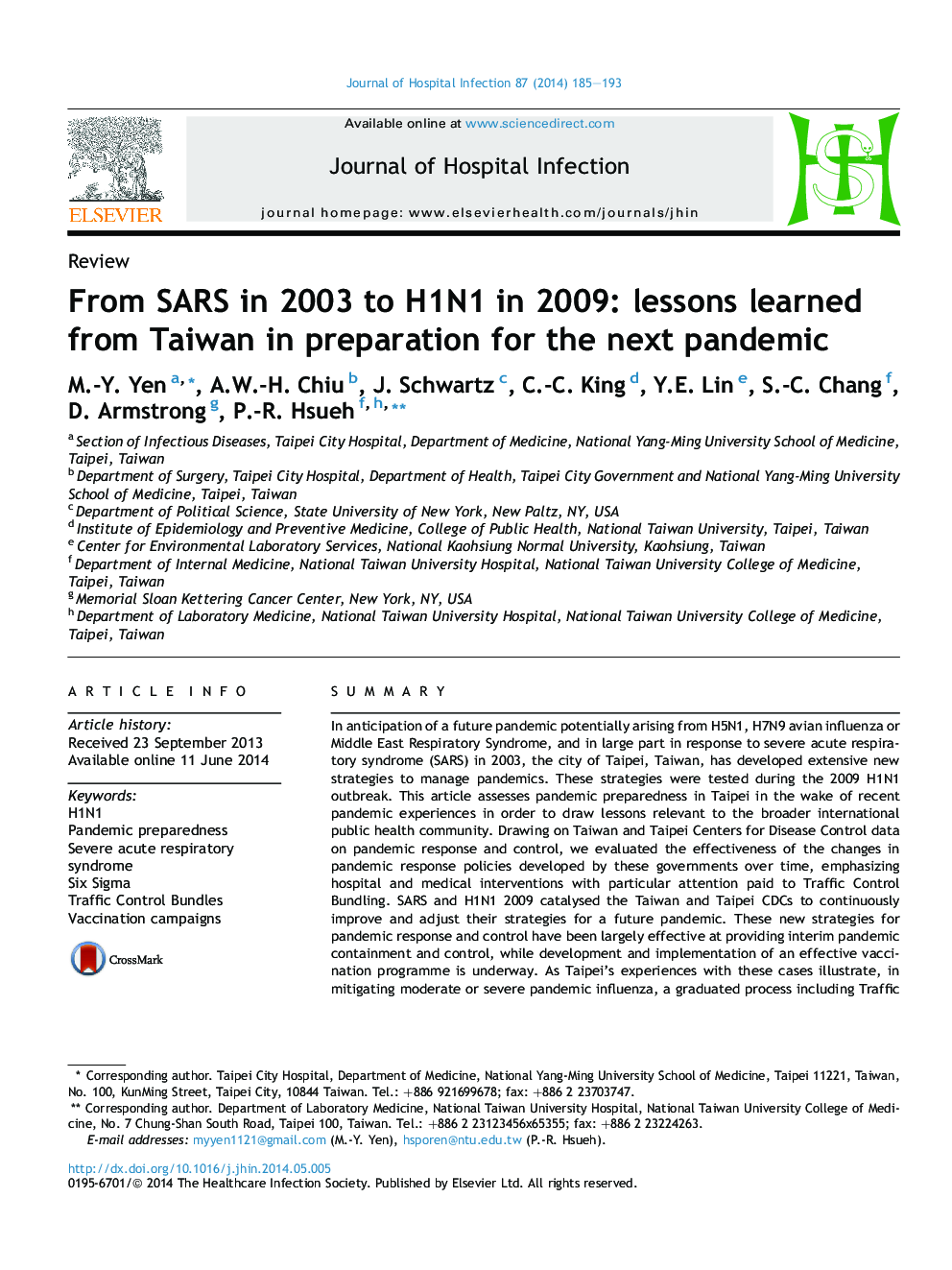| کد مقاله | کد نشریه | سال انتشار | مقاله انگلیسی | نسخه تمام متن |
|---|---|---|---|---|
| 3371813 | 1219228 | 2014 | 9 صفحه PDF | دانلود رایگان |

SummaryIn anticipation of a future pandemic potentially arising from H5N1, H7N9 avian influenza or Middle East Respiratory Syndrome, and in large part in response to severe acute respiratory syndrome (SARS) in 2003, the city of Taipei, Taiwan, has developed extensive new strategies to manage pandemics. These strategies were tested during the 2009 H1N1 outbreak. This article assesses pandemic preparedness in Taipei in the wake of recent pandemic experiences in order to draw lessons relevant to the broader international public health community. Drawing on Taiwan and Taipei Centers for Disease Control data on pandemic response and control, we evaluated the effectiveness of the changes in pandemic response policies developed by these governments over time, emphasizing hospital and medical interventions with particular attention paid to Traffic Control Bundling. SARS and H1N1 2009 catalysed the Taiwan and Taipei CDCs to continuously improve and adjust their strategies for a future pandemic. These new strategies for pandemic response and control have been largely effective at providing interim pandemic containment and control, while development and implementation of an effective vaccination programme is underway. As Taipei's experiences with these cases illustrate, in mitigating moderate or severe pandemic influenza, a graduated process including Traffic Control Bundles accompanied by hospital and medical interventions, as well as school- and community-focused interventions, provides an effective interim response while awaiting vaccine development. Once a vaccine is developed, to maximize pandemic control effectiveness, it should be allocated with priority given to vulnerable groups, healthcare workers and school children.
Journal: Journal of Hospital Infection - Volume 87, Issue 4, August 2014, Pages 185–193